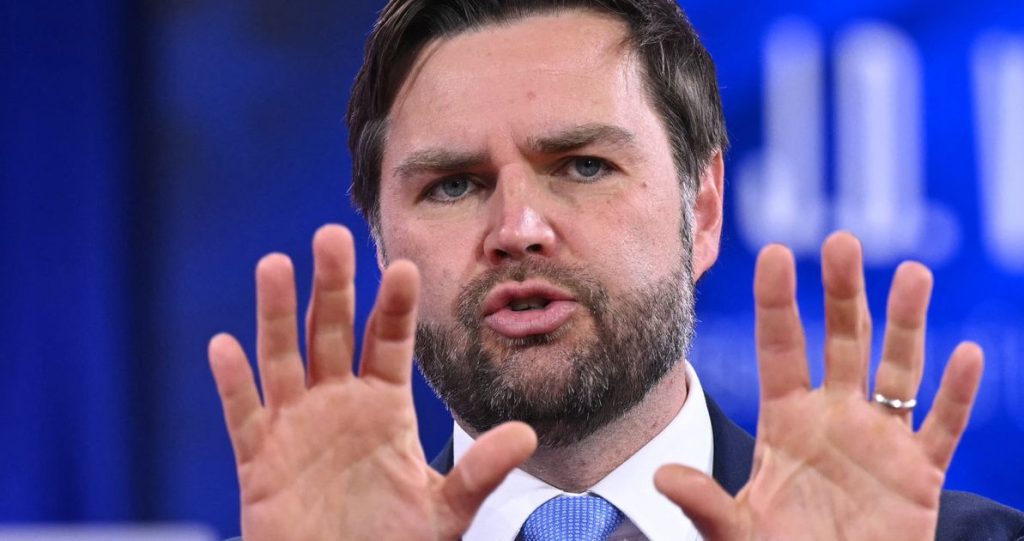Vice President JD Vance sparked widespread criticism and ridicule on social media after making controversial remarks about masculinity during his appearance at the Conservative Political Action Conference (CPAC) in Washington, D.C. on Thursday. During a sit-down conversation with CPAC host Mercedes Schlapp, Vance was asked to share a message with young men. His response, filled with outdated stereotypes about masculinity, quickly went viral and drew sharp backlash from critics who accused him of promoting harmful and narrow views of manhood. Vance claimed that modern culture is suppressing masculine urges, defining masculinity in terms of simple acts like drinking beer with friends, telling jokes, and being competitive. His comments were met with cheers from the CPAC crowd but were largely condemned online, where many argued that his views were not only misguided but also damaging to young men.
At the heart of Vance’s message was the idea that society is actively working to undermine traditional notions of masculinity. He alleged that there is a broader cultural agenda to erase distinctions between genders and turn people into “androgynous idiots who think the same, talk the same, and act the same.” Vance emphasized that he and his peers believe God created male and female for specific purposes and that they aim to support young men and women in thriving in their respective roles through public policy. He also highlighted his own behavior—such as telling jokes with friends—as an example of the “essence of masculinity.” However, his definition of masculinity was swiftly criticized for being simplistic, exclusive, and disconnected from the complexities of modern life. Many pointed out that reducing masculinity to beer drinking and joke-telling ignores the diversity of masculine experiences and perpetuates unhealthy stereotypes.
The backlash against Vance was fierce, with numerous users on X (formerly Twitter) calling out his comments for being outdated and harmful. One user wrote, “If your masculinity crumbles at the mere thought of gender rights, maybe you shouldn’t be lecturing anyone on what it means to be a man.” Another added, “Real men don’t have to go around proving that they are real men,” emphasizing that genuine confidence and decency are far more important than superficial displays of masculinity. Critics also argued that Vance’s rhetoric—along with similar narratives promoted by President Donald Trump and other Republicans—serves to fuel toxic stereotypes and further divide society. The idea that men are under attack or need to be “protected” was particularly criticized for being both inaccurate and damaging.
Jillana Enteen, a professor of gender and sexuality studies at Northwestern University, weighed in on the controversy, calling Vance’s remarks harmful. She argued that framing men as victims of cultural suppression is not only disempowering but also contradicts the historical and systemic advantages men, especially white men, have held in American society. Enteen pointed out that Vance’s definition of masculinity—centered on activities like drinking beer and telling jokes—narrowly confines the way men are expected to behave, ignoring the vast range of ways masculinity can be expressed. She also noted that the term “masculine urges” is often associated with negative traits like violence or emotional suppression, which are unhealthy for young men to emulate. By promoting such a limited and regressive view of masculinity, Enteen said, Vance is setting young men up for frustration and harm.
Enteen also addressed the broader context of the Trump administration’s recent actions on gender identity. President Trump has signed executive orders declaring that there are only two sexes and rejecting the idea that gender can exist on a spectrum. These moves, combined with Vance’s rhetoric, reflect a concerted effort to roll back progress on gender equality and inclusivity. Enteen stressed that recognizing gender identity is essential for promoting inclusivity and equity, and that refusing to do so only serves to marginalize transgender and nonbinary individuals. By framing gender identity as a threat, Trump and Vance are advancing a narrative that harms not only individuals but also society as a whole.
The uproar over Vance’s comments highlights the ongoing debate over masculinity, gender roles, and identity in American culture. While Vance and Trump continue to peddle nostalgic and exclusionary views of manhood, critics argue that such rhetoric is out of touch with the realities of modern life. By framing men as victims and promoting rigid stereotypes, they risk alienating young men who are seeking a more inclusive and compassionate understanding of masculinity. As the conversation around gender continues to evolve, it is clear that the old models of masculinity—like those espoused by Vance—are no longer tenable. Instead, the focus should be on fostering a more nuanced and inclusive understanding of what it means to be a man, one that values diversity, empathy, and self-confidence without the need for performative displays of masculinity.









